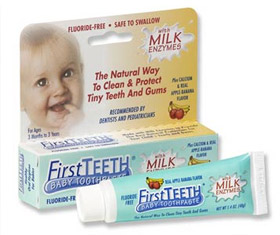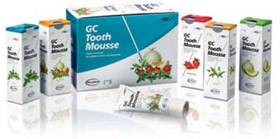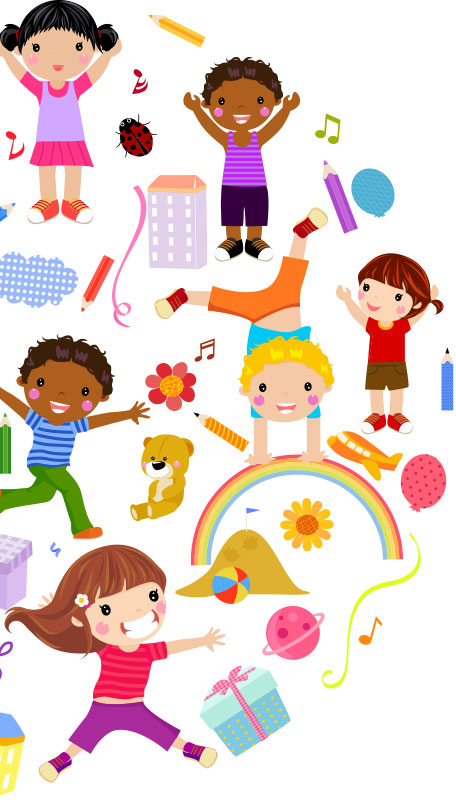What every parent should know
Good oral health is an important part of the infant’s and child’s overall health.
The foundation of good oral health in adults is established right from the infant stage. Inculcating good lifestyle habits and regular dental care in infants goes a long way to creating a strong foundation for a lifetime of good oral health.
Why are baby or primary teeth important?
Primary teeth allow the child to eat and chew properly which is critical for maintaining good nutrition for the growing child. Baby teeth are also important for speech development and maintaining the space required for the eruption of the permanent teeth into their ideal positions at the right time. Not having teeth can also have deleterious effects on a child’s self-esteem.
Decay of the primary teeth can cause great distress to a child. If serious enough, tooth decay may be so extensive as to require root canal treatment or even extraction. Early loss of baby teeth disrupts the eruption pattern of permanent teeth and may give rise to crooked and/or impacted permanent teeth which will need expensive orthodontic or surgical treatment in future to correct. Badly decayed primary teeth can also give rise to infections which can then affect the development of the underlying permanent teeth. These affected permanent teeth may become discoloured or have surface defects
What is caries?
Caries is decay caused by bacteria (mutans streptococci) acting on carbohydrates and sugar found in food debris. Liquids that contain fermentable carbohydrates are for example juice, milk, formula and soft drinks.
The majority of the bacteria that infants acquire are from their mother’s or caretaker’s saliva. This comes from intimate contact with the infant through kissing, sharing of utensils and even caregiver blowing on food to cool it down while feeding. Infants and toddlers whose mothers or caretakers have high levels of mutans streptococci are at a greater risk of acquiring the decay causing bacteria than children whose mothers have low levels. Hence, good dental health and hygiene should start with mummy pre-natally. It is important for mothers and caregivers to have good oral hygiene and be educated dentally so as to establish healthy oral habits for their children.
What is Baby Bottle or Nursing caries?
This is also known as Early Childhood Caries (ECC) by the dental professionals. In children younger than 3 years of age, any sign of decay on the surface of the teeth other than the biting surface is indicative of this disease. The surfaces most commonly affected are on the front surface of the upper front teeth as well as in between the baby molars. More often than not, a few teeth are decayed at a time as baby teeth are not as highly mineralised as permanent teeth as are more easily decayed. Children with ECC have high levels of mutans streptococci or have poor feeding or oral hygiene habits or a combination of these. In infants, the immune system is not fully developed and hence, if there are high levels of bacteria or too much sugar or fermentable carbohydrates in the diet, combined with poor cleaning habits, the infant is at a higher risk of developing ECC.
It has also been shown in some research that infants or toddlers with ECC have a greater risk of developing decay as an adult and also grow at a slower pace compared to other infants without ECC.
How can we prevent ECC or decay in the infant or child?
The most common cause for ECC is bottle feeding before bedtime or during the night.
Infants should not be put to sleep with a bottle, especially if it contains milk, juice or a sugary drink as repeated, intermittent drinking from the bottle (unless it contains water) offers opportunities for bacteria acid attack on the teeth. The reduced salivary flow during sleep will also limit the neutralising and diluting effects of saliva. Hence, do not allow your child to carry the bottle to bed to suck at intermittently unless it contains only water. Parents should also encourage their infants to drink from a cup as they approach their first birthday. It is recommended that infants be weaned from the bottle at 12-14 months of age.
If your child is breastfed, feeding on demand at night is also discouraged after the first primary tooth is out (at about 6 months of age). If you need to feed at night, wipe over your infant’s teeth with a damp, clean wash cloth after each feed.
What oral hygiene practices should parents adopt for their infant or child?
Oral hygiene measures should be implemented as soon as the first primary tooth is in the mouth. However, you may want to start getting your child used to having his/her gums wiped with a damp cloth before they start teething. For the infant, use a clean, damp wash cloth to wipe and remove food debris and plaque (the whitish, or pale yellow layer coating teeth). Soft finger brushes and wipes for infants can also be used as alternatives
Toothpaste is usually not recommended up to 2-3 years of age depending on when the child is able to spit. This is because most toothpaste in the market contains fluoride and if a child is unable to spit well, the ingested toothpaste can be excessive and cause fluorosis or mottling ( varies from white specks to brown streaks and even pitting in severe cases) of the developing permanent teeth. If you want to use toothpaste, use one that does not contain fluoride eg First Teeth toothpaste. Tooth Mousse is also a non-fluoridated product
When your child learns to spit, a fluoride toothpaste can be used. Although most children’s toothpaste contain a reduced amount of fluoride, it is still advised that only a very small amount should be used. You should also floss your child’s teeth wherever there is contact between 2 adjacent teeth.


How is fluoride important to teeth?
Fluoride, in the appropriate amounts, helps in building up the resistance of teeth to decay. Singapore’s water supply is already supplemented with the appropriate amount of fluoride, hence, there is no need to take fluoride tablets as supplements. Using a fluoride containing toothpaste at the appropriate age is sufficient as inappropriate or excessive use of fluoride can cause fluorosis.
When should I bring my child to the dentist and what can I expect at the visit?
A visit to dentist can commence as early as 6 months after the eruption of the first tooth. It is always better to bring the infant or child to the dentist when he or she is not in pain or experiencing any dental problems. This gives the child and caregiver a chance to develop a positive relationship with the dentist without any threat of pain or discomfort. Once, the child is familiar and trusts the dentist, a comfortable and non-threatening environment will be created.
The first dental visit will usually involve familiarising the child with the dental setting where the sights and sounds of the dental clinic will be slowly introduced in a fun way. Children are very perceptive and any negative feelings adults may have towards dentistry can inadvertently be transferred to the child. It is therefore very important that parents are calm before and encouraging during the dental visits as this will give your child confidence
The last thing you want to do is threaten your child or warn him/her that the dentist will take out his/her teeth if they do not behave!
Remember, the dentist is on your side! Parents and caregivers must work together with the dental team to reinforce oral hygiene and dietary habits at home.
Some dentists also perform the Caries-risk Assesment Tool (CAT) to assess the child’s risk for decay which not only involves an examination of your child’s mouth, but also a very detailed interview with the caregiver or parent.

